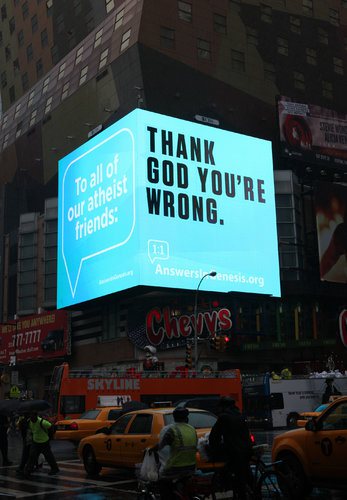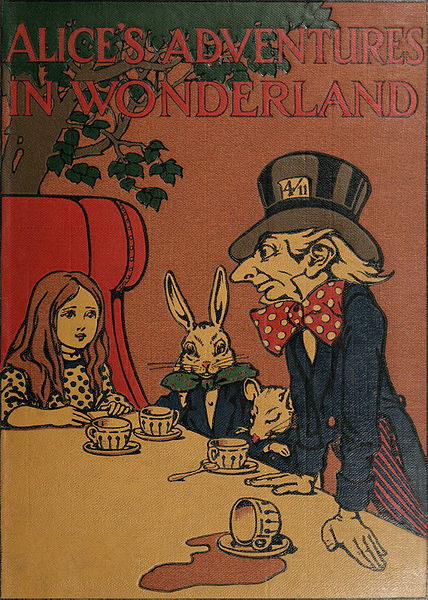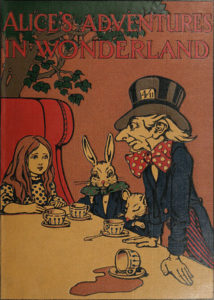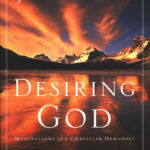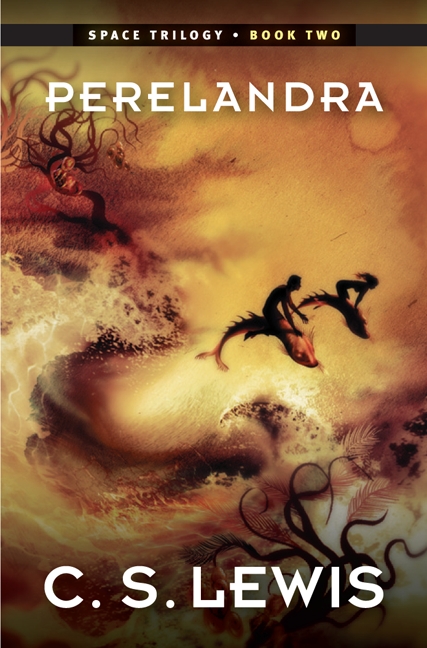Mere Morality: A Critique Of âWholesomeâ Books For Kids
The love of books is a part of Christian heritage.1 Our entire faith rests upon a written text, and where ever Christianity goes, it takes with it an urgency to teach its converts how to read. As English speaking people, we can look back on a literature richly laced with Christian writings. From the Puritan epic, Pilgrim’s Progress, in the 1600s, right up to C.S. Lewis’s fiction in this century, we have always been a reading and a writing people.
But Christian writing, much of it, is now faltering. Our Christian bookstore shelves seem to be lined with books, especially books for children, that either imitate secular novels and are shallow and silly, or that describe such fantastically improbable lives of perfect families, perfect churches, and ideal circumstances that the reader cannot stomach much at one sitting. Increasingly, as Christians emphasize that reading materials must be suitable for family reading and be “wholesome,” the list of limitations on what Christians can read is getting longer and longer, and yet Christian books for children and young adults are becoming less and less able to hold the reader, engage the reader, and what’s worse, assure the reader of the soundness of faith in Christ.
In Christian fiction, we are either dodging the most crucial issues that Christian children are going to face, such as divorce, immorality and its consequences, substance abuse, and the fall of ministers of the Gospel, or we are presenting them with unrealistic depictions of the perfect lives of Christians. In both cases, the problem is created by an insistence that Christian fiction must serve as a tool for role modeling.

Derwood, Inc.: a much better and funnier book before its publisher altered it to be more “wholesome” for readers.
While working for a very small novel publisher, I checked with one Christian magazine to see what their policies were on carrying book advertisements. I called the advertisements manager, and I was told that only “wholesome” Christian books would be allowed ad space. I asked the woman what she meant by “wholesome.” She was surprised at the question. “Are the children in the books obedient and respectful to authority?” she asked, rather sharply. She didn’t even wait for an answer. My asking had been enough to cast considerable doubt in her mind, and she stipulated that I send her the complete text of each novel for examination before they would consent to advertise these novels. I did point out to her that I have written over a dozen books for Bob Jones University Press, and that my books have been bought, read, and approved primarily by home schooling families for the last six years, but she remained unimpressed.
Her definition of a wholesome book points up a big problem in Christian publishing. It seems safe to say that many people who advocate “wholesome” Christian books are looking for books in which the human characters model those qualities that we want to see in our children.
Yet the goal of fiction (most people would agree) is two-fold for Christians. One, it must present a reasonably realistic picture of the way that life runs — that is, the wicked get punished, the just may suffer but ultimately triumph, etc. Two, God must be glorified and it is best if some part or quality of His nature is highlighted in the story — hopefully in an artful way that appeals to both the reader’s intellect and emotions.
If we accept these two stipulations as necessary for good Christian fiction, then we are able to critically evaluate what it is that our children read. But if we seek out books that present basically “good” people, we are presenting fiction to our children that violates the two principles of what makes such fiction distinctively good and distinctively Christian.
First, all children, including Christian children, are born under a condition of sin that every godly influence will be seeking to point out and eradicate for the rest of the child’s life. Christian children mess up their rooms, behave selfishly, squabble, and can even plot out their own little schemes to get what they want out of people. Second, depicting basically “good” people interferes with the accurate presentation of God as the source of our justification and sanctification in this life. If, in the name of “wholesome” fiction, we present a literature that emphasizes the modeling of virtues by role models, we automatically eliminate the presentation of every Christian’s need to continue to depend on God for a daily righteous walk.
I’m not advocating the opposite extreme of making fiction gritty and tawdry in the name of “realism.” I’m not advocating the loss of innocence in children’s stories. What would childhood be without The Moffats, or Big Red, or Treasure Island? What I am warning against is the mindset of allowing or prescribing a literature that only depicts Christian life as consisting of righteous parents and righteous children, essentially doing righteous things. Such a literature is a lazy literature that tells us only what we want to hear about ourselves, not what we need to hear.
Let us remember the example of Job. His marital problems and his lengthy discourse of complaint against God would bar him as the main character of a “wholesome” Christian novel. Similarly, Samson would be barred, as would Naomi, who married a non-believer and created all kinds of problems for herself. Both Deborah and Lydia had work that took them outside the home: are they wholesome enough? I won’t even bring up Rahab and her line of work before becoming a believer! In fact, I can think of few men or women in the Bible who did not suffer some fall or who did not fit some unconventional role, yet they are presented all the same. The Bible, apparently, is not looking for role models so much as it is trying to convey the righteousness of God and His ability to transform His people.
The truth is that when we enter the Christian life, we ourselves are depraved sinners, newly saved, and our circumstances, whatever they are, have been touched by our depravity. As we carry out our Christian lives, we are progressively sanctified by the grace of God. Christian fiction that depicts model parents, model marriages, model children, model churches, ignores (or actually contradicts) the truth that the Christian life is a progress of being sanctified.
So I’m warning against adopting an insular attitude toward fiction. And I’m trying to proclaim what Christian fiction should be. But I’m not criticizing any particular book–only a mindless pursuit of a marketplace that depicts righteousness as somehow being inherent in Christian effort and Christian character, when actually it is inherent in our God, who increasingly conforms His people to the image of His Son.
Christian fiction has become much more diverse in the last several years, but there still is what I would call the standard story formula for Christian children’s fiction, and I think it will be familiar to people who have read even a few samples of Christian fiction for children and young adults.
- Much Christian fiction depicts Christian kids (from a two-parent family, of course) that are “good guys” and non-Christian kids that are “bad guys” (or at least not as good). This presentation is building an assumption in the young reader that somehow Christian kids are innately “good” as opposed to non-Christian kids who are “bad.” Such thinking is the exact ungodly influence that every one of us Christians fights: self-righteousness: viewing ourselves as good or deserving of God’s blessings.
- Salvation is presented as some kind of finishing point in the story, and once a person is saved, that person becomes lovable and “right.” Many Christian stories just cannot resist that tearful declaration of salvation at the very end. But one problem with stories that use salvation experiences as a climax is that God is depicted as being absent through most of the story, then shows up to dispense salvation, then is gone again. The truth that God is continually at work in His own people, sanctifying the sin out of them, is not dealt with, or not dealt with enough. Yet, realistically, we spend most of our lives under the conditions of being sanctified. A realistic depiction of the Christian experience would spend ten pages on justification (salvation) and five hundred pages on sanctification. Yet it seems that the vast majority of short stories and novels written for Christian young people in the last twenty years uses salvation as some part of a climax in the story.
In all of this, the question remains that if the “wholesome” perspective is not broad enough for a Christian literature, what should be the considerations of Christian fiction? What are the techniques or characteristics of a broad and encompassing literature the meets the requirements of depicting Christ through the events of life and holds the reader’s attention without being preachy, sentimental, or unrealistic??
Good Christian fiction depicts Christians as they are, not as we would like them to be. That is, the characters are sympathetic to us: funny, charming, likable people, but they do sin. In fact, they can do really rotten things.
Good Christian fiction depicts that neither Christians nor non-Christians are deserving of salvation. In fact, it may show that some non-Christians may actually be more pleasant to be with than some Christians.
Good Christian fiction does not hide issues of divorce, profane lifestyles, or over indulgence from readers. This does not mean that it is graphic or gratuitous in its portrayal of sin, but Christian fiction, more than any other literature, ought to portray sin for what it is and for what it does, and for who it can bring down and why.
Good Christian fiction glorifies God, not Christianity. Its emphasis (perhaps best achieved by a “looking back” technique at a few places in the story) is that God in mercy is bringing events to bear on the characters–both good and bad events.
Ultimately, good Christian fiction must reveal a love of God, which is godly, as opposed to a love of mere morality, which is secular.
When Christians start to look for “wholesomeness” as a goal, or form a literary ideology around it, they are falling back on human-centered assumptions of personal righteousness and a comfortable society. But the Christian is commanded to move away from the practice of mere morality and to embrace the practice of grace. To put it another way, morality is a good tool, but it is a poor replacement for the central truths of our faith, which ought to be forming the central ideas of our literature.
- Originally published at JeriWho.net. Republished here with permission. From the author: This material is copyrighted and may not be reproduced or reprinted without permission from the author. ↩


































